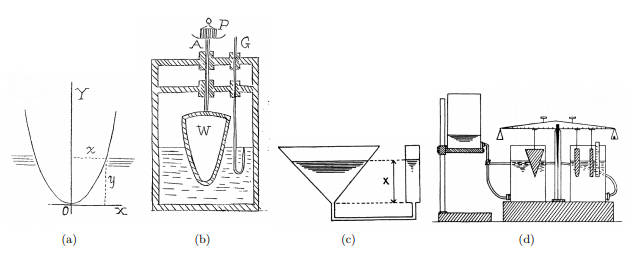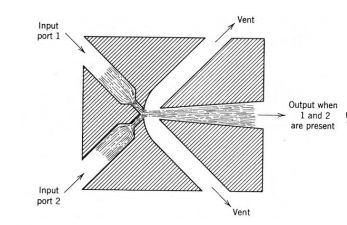| Liquid Computers |
| Written by Mike James | |||
| Sunday, 16 December 2018 | |||
|
Yes, it's not a misprint. In these days of solid state computers, and perhaps even one day quantum computers, it seems strange that you can use liquids to do the same jobs - and more. A survey paper "The dry history of liquid computers" by Andrew Adamatzky makes fascinating reading and is easily accessible to the non-specialist. It deserves to be better known. Adamatzky, who is Professor in Unconventional Computing at the University of the West of England in Bristol, is known for his excursions into novel computing implementations, most notably using slime mould - no this is not a joke. Apparently slime mould is intelligent enough to react to its surroundings and this makes it suitable for computation. If the idea of using a fluid to do computations seems strange it is worth pointing out that there are two distinct approaches to implementing any computation - analog and digital. The analog approach has mostly gone out of fashion these days, but in the early 20th century it was the main form of computing. An analog computer is best thought of as a physical model of what you are trying to compute. You discover the solution by measuring the model. For example, you can represent the flow of current in a wire by a flow of water in a pipe. You can model other electronic components using tanks and one-way valves. The final result is often just the height of the water in a tank. One famous liquid analog computer was MONIAC, included in the first part of the paper, which modeled the New Zealand economy using water to represent money.
A water device to calculate the nth root of any number. To most readers, my guess is that the most interesting part of the paper is the second half, which looks at fluid digital computers. The reason is that once you see how a fluid can represent a quantity your next task is to see how to manipulate it to get the answer you want - it's mostly engineering. Digital' on the other hand' seem more mysterious. The key is to find ways of implementing logic gates. To be more precise' all you really need to do is find a way to implement a universal logic gate then all the others follow. For example, a standard fluidic gate is:
You can see that you only get an output when input 1 and 2 are present - an AND gate. You can use similar tricks to create other gates. From here you can start to invent all sorts of logic gates based on water drops, liquid marbles and so on. Moving on you can even implement gates using chemical reactions. Once you have seen the basic idea, you can start inventing your own computational implementations. What is amazing is how easy it is to find logic gates in nature - the world really is a computer. For more fun read the paper it is very approachable. More InformationThe dry history of liquid computers Related ArticlesSlime Mold Simulates Canadian Transport System A Water Droplet-Based Computer A 4-Bit Adder Made Of Cardboard!The Trick Of The Mind - Turing Complete Sliding Blocks Are Turing Complete Stanford Engineers Build A Water Droplet Based Computer A Water Droplet-Based Computer To be informed about new articles on I Programmer, sign up for our weekly newsletter, subscribe to the RSS feed and follow us on Twitter, Facebook or Linkedin.
Comments
or email your comment to: comments@i-programmer.info
|
|||
| Last Updated ( Sunday, 16 December 2018 ) |




